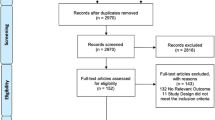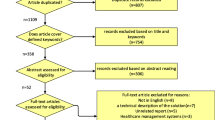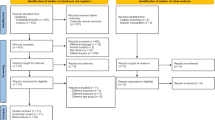Abstract
The paper shows the results on the relationship between zinc status, psychological dimensions (cognitive functions, mood, perceived stress) and nutritional aspects in European healthy old subjects recruited for ZINCAGE Project (supported by the European Commission in the Sixth Framework Programme). The old healthy subjects were recruited in Italy, Greece, Germany, France, Poland taking into account the different dietary habits between Northern and Southern European Countries and the pivotal role played by zinc for psychological functions. Measures of the cognitive status, mood and perceived stress level were obtained at baseline, using the “Mini Mental State Examination (MMSE)”; the “Geriatric Depression Scale (GDS – 15 items)” and the “Perceived Stress Scale (PSS)”, respectively. Nutritional status was assessed using “Frequency Food Questionnaire”. The sample included 853 old subjects, classified in 4 groups of age: 60–69-years-old (n = 359); 70–74-years-old (n = 225); 75–79-years-old (n = 153); 80–84-years-old (n = 116). Subjects were studied on the basis of plasma zinc, in which zinc ≤11 μM means marginal zinc deficiency. The total samples showed that the 82% had no cognitive decline, whereas 76% presented a low GDS value indicating no depression. However, all psychological variables were related to plasma zinc values and nutritional assessment. In particular, a relationship between marginal zinc deficiency and impaired psychological dimensions occurred in Greece than in other European countries due to low intake and less variety of foods rich of zinc. This phenomenon was independent by the age, suggesting that a correct zinc intake from a wide range of foods may be useful to maintain a satisfactory plasma zinc levels as well as psychological status in elderly with subsequent achievement of healthy ageing.
Similar content being viewed by others
References
Andriollo-Sanchez M, Hininger-Favier I, Meunier N, Toti E, Zaccaria M, Brandolini-Bunlon M, Polito A, O’Connor JM, Ferry M, Coudray C, Roussel AM (2005) Zinc intake and status in middle-aged and older European subjects: the ZENITH study. Eur J Clin Nutr 59(Suppl 2):S37–S41
Cohen S, Kamarck T, Mermelstein R (1983) A global measure of perceived stress. J Health Soc Behav 24:385–396
Coudray C, O’Connor JM, Maiani G, Cashman KD, Simpson EE, Secker DL, Ferry M, Roussel AM (2005) Introduction to the ZENITH study and summary of baseline results. Eur J Clin Nutr 59(Suppl 2):S5–S7
Folstein MF, Folstein SE, McHugh PR (1975) “Mini-mental state”. A practical method for grading the cognitive state of patients for the clinician. J Psychiatr Res 12:189–198
Giacconi R, Cipriano C, Muti E, Costarelli L, Maurizio C, Saba V, Gasparini N, Malavolta M, Mocchegiani E (2005) Novel −209A/G MT2A polymorphism in old patients with type 2 diabetes and atherosclerosis: relationship with inflammation (IL-6) and zinc. Biogerontology 6:407–413
Keenan JM, Morris DH (1993) How to make sure your older patients are getting enough zinc. Geriatrics 48:57–65
Krondl M, Coleman PH, Bradley CL, Lau D, Ryan N (1999) Subjectively healthy elderly consuming a liquid nutrition supplement maintained body mass index and improved some nutritional parameters and perceived well-being. Am Diet Assoc 99:1542–1548
Maes M, De Vos N, Demedts P, Wauters A, Neels H (1999) Lower serum zinc in major depression in relation to changes in serum acute phase proteins. J Affect Disord 56:189–194
Marcellini F, Giuli C, Papa R, Malavolta M, Mocchegiani E (2006) Psychosocial aspects and zinc status: is there a relationship with successful aging? Rejuvenation Res 9:333–337
Maret W, Sandstead HH (2006) Zinc requirements and the risks and benefits of zinc supplementation. J Trace Elem Med Biol 20:3–18
McConville C, Simpson EE, Rae G, Polito A, Andriollo-Sanchez M, Meunier N, Stewart-Knox BJ, O’Connor JM, Roussel AM, Cuzzolaro M, Coudray C (2005) Positive and negative mood in the elderly: the ZENITH study. Eur J Clin Nutr 59(Suppl 2):S22–S25
McDaniel MA, Maier SF, Einstein GO (2003) Brain-specific nutrients: a memory cure? Nutrition 19:957–975
Meunier N, O’Connor JM, Maiani G, Cashman KD, Secker DL, Ferry M, Roussel AM, Coudray C (2005) Importance of zinc in the elderly: the ZENITH study. Eur J Clin Nutr 59(Suppl 2):S1–S4
Mocchegiani E, Bertoni-Freddari C, Marcellini F, Malavolta M (2005) Brain, aging and neurodegeneration: role of zinc ion availability. Prog Neurobiol 75:367–390
Mocchegiani E, Costarelli L, Giacconi R, Cipriano C, Muti E, Tesei S, Malavolta M (2006) Nutrient–gene interaction in ageing and successful ageing. A single nutrient (zinc) and some target genes related to inflammatory/immune response. Mech Ageing Dev 127:517–525
Ortega RM, Requejo AM, Andres P, Lopez-Sobaler AM, Quintas ME, Redondo MR, Navia B, Rivas T (1997) Dietary intake and cognitive function in a group of elderly people. Am J Clin Nutr 66:803–809
Requejo AM, Ortega RM, Robles F, Navia B, Faci M, Aparicio A (2003) Influence of nutrition on cognitive function in a group of elderly, independently living people. Eur J Clin Nutr 57:S54–S57
Simpson EE, Maylor EA, Rae G, Meunier N, Andriollo-Sanchez M, Catasta G, McConville C, Ferry M, Polito A, Stewart-Knox BJ, Secker DL, Coudray C (2005) Cognitive function in healthy older European adults: the ZENITH study. Eur J Clin Nutr 59(Suppl 2):S26–S30
Trichopoulou A, Orfanos P, Norat T, Bueno-de-Mesquita B, Ocke MC, Peeters PH, van der Schouw YT, Boeing H, Hoffmann K, Boffetta P, Nagel G, Masala G, Krogh V, Panico S, Tumino R, Vineis P, Bamia C, Naska A, Benetou V, Ferrari P, Slimani N, Pera G, Martinez-Garcia C, Navarro C, Rodriguez-Barranco M, Dorronsoro M, Spencer EA, Key TJ, Bingham S, Khaw KT, Kesse E, Clavel-Chapelon F, Boutron-Ruault MC, Berglund G, Wirfalt E, Hallmans G, Johansson I, Tjonneland A, Olsen A, Overvad K, Hundborg HH, Riboli E, Trichopoulos D (2005) Modified Mediterranean diet and survival: EPIC-elderly prospective cohort study. Br Med J 330:991–998
Yesavage JA, Brink TL, Rose TL, Lum O, Huang V, Adey M, Leirer VO (1983) Development and validation of a geriatric depression screening scale: a preliminary report. Psychiatr Res 17:37–49
Acknowledgments
Supported by European Commission (ZINCAGE Project, contract No. FOOD-CT-2003-506850, Coordinator Dr. Eugenio Mocchegiani) and by INRCA.
Author information
Authors and Affiliations
Corresponding author
Additional information
Presented at the ZincAge Conference, Madrid, February 10–13, 2006
Rights and permissions
About this article
Cite this article
Marcellini, F., Giuli, C., Papa, R. et al. Zinc status, psychological and nutritional assessment in old people recruited in five European countries: Zincage study. Biogerontology 7, 339–345 (2006). https://doi.org/10.1007/s10522-006-9048-4
Published:
Issue Date:
DOI: https://doi.org/10.1007/s10522-006-9048-4




